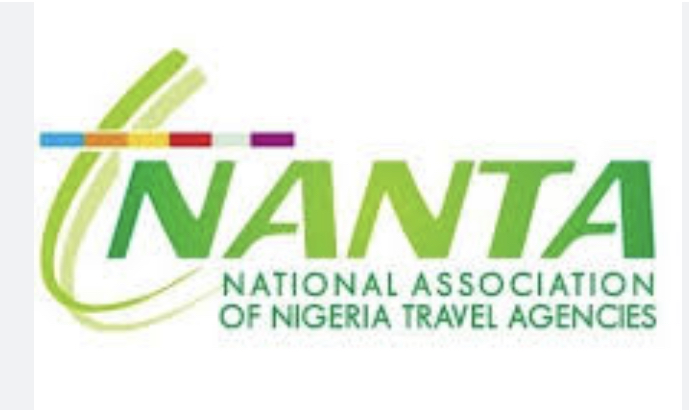Stakeholders in Nigeria’s travel industry gathered recently in Lagos for the 49th Annual General Meeting of the National Association of Nigeria Travel Agencies ( NANTA).
Themed “Collective Prosperity Through Market Protection,” the event addressed major concerns affecting the travel sector, including the issue of cross-border ticketing, a situation that has impacted negatively on travel agencies across the nation.
President of the National Association of Nigerian Travel Agencies (NANTA), Mr. Yinka Folami disclosed that it has reported five travel agencies who are currently under investigation to the federal government for engaging in cross border trading on ticket sales.
Capital Flight and Economic Implications
Cross-border ticketing has become a significant concern within Nigeria’s travel industry, leading to various challenges impacting both travel agencies and consumers. It happens when a foreign registered travel agent sells tickets to travelers from Nigeria with the funds generated from the transaction domiciled in another country.
Mr. Folami emphasized that such practices not only harm local businesses but also contribute to economic instability, leading to job losses within the sector. The association expressed deep concerns over capital flight resulting from cross-border ticketing.
Addressing Revenue Loss and Market Decline
NANTA’s President, Mr. Yinka Folami, highlighted the significant revenue losses faced by local travel agencies due to the practice of purchasing international air tickets from foreign markets.
He noted that this trend has led to a 40% reduction in the Nigerian travel market share, with agencies reporting a decline of approximately $550 million in ticket sales in 2022.
“Cross border sales is a sin and disrespectful to our economy. Government has asked us to present the names of the culprits. We have five names that have been mentioned. The country is investigating them for money laundering. We will stop it. We should also stop buying from them,” Folami said.
He said the tickets sold by these cross-border traders are often cheaper, adding that NANTA is investigating how these agents from other countries get cheap tickets for the Nigerian market.
He said there is a need for the association to come together to build a robust constitution, engage in self-regulation and heed to advice from NANTA founders on tacking the issue.
The NANTA president also described cross-border ticketing as a “detrimental practice that threatens the Nigerian economy,” advocating for policies that protect consumers and ensure fair competition.
He urged regulatory bodies, including the Federal Competition and Consumer Protection Commission (FCCPC) to intervene.
Identifying challenges with Foreign Exchange Policies
Disparities in exchange rates applied by international bodies, such as the International Air Transport Association (IATA), were identified as exacerbating the situation.
The use of less favorable exchange rates encourages travelers to purchase tickets from foreign markets, undermining the local travel industry.
Over the years, NANTA as an association has grappled with various challenges bordering the need to maintain its points of sales especially as it related with foreign airlines. Speaking its achievement in recent times, Mr. Yinka Folami said NANTA’s has focused on the need to distribute wealth and as well engage in self-regulation.
“We made airlines confirm to us that they are principals to us and so the airlines should not be seen to be in competition with us. The airlines are very responsive to us. What we have done in the last six years is that we have set up committees and a key committee is the constitution review committee. The training committee is also doing very well. We are relaunching the ID cards and website today. We are also launching our NANTA mobile app,” he said.
Minister of Aviation and Aerospace Development Festus Keyamo, represented by Henry Agbebire, Director, special Duty, Federal Airports Authority of Nigeria (FAAN) reaffirmed the Ministry’s support for initiatives that promote industry standards, protect legitimate market players, and enhance customer confidence. According to him, this underscores the importance of collaboration, regulation, and shared responsibility in safeguarding the integrity and sustainability of Nigeria’s travel and tourism ecosystem.
“We recognize the role of travel agencies as critical partners in the air travel value chain and remain committed to creating an enabling environment for your operations to thrive,” he added.
During his keynote address, Kemi Pinheiro, Founding Partner, Pinheiro LP said in the travel and tourism industry, where trust, service quality, and reliability are paramount, maintaining high standards of professional conduct is not just desirable—it is indispensable.
Pinheiro said a comprehensive constitution must therefore set out clear ethical standards and disciplinary procedures, adding that it becomes the moral compass that guides the conduct of members and reinforces industry confidence.
“This principle has helped uphold the integrity of the legal profession in Nigeria. Likewise, NANTA stands to benefit greatly by embedding exacting professional standards within its own constitutional framework, thereby reinforcing its standing as a credible and principled industry body,” he added.
Launch of Digital Membership ID Cards
A major highlight of the AGM was the official launch of digital ID cards for members—an initiative designed to boost the credibility and professionalism of NANTA members, while fostering greater trust and recognition across the travel industry.
As NANTA approaches its 50th anniversary in 2026, the association stands poised for a new era of growth and collective prosperity. With a firm commitment to collaboration with government agencies, regulatory bodies, and key industry stakeholders, the future indeed looks promising for the association and its members as it continues to chart a course toward achieving its goals.







